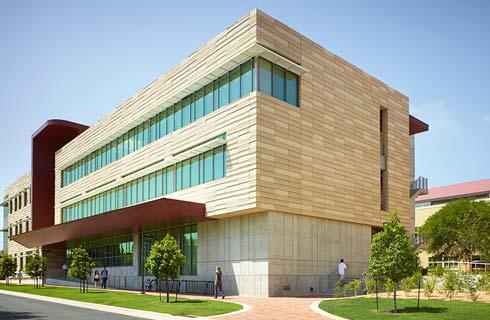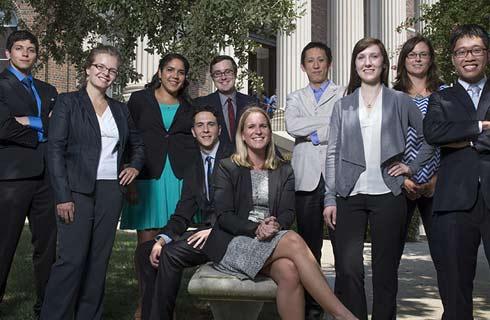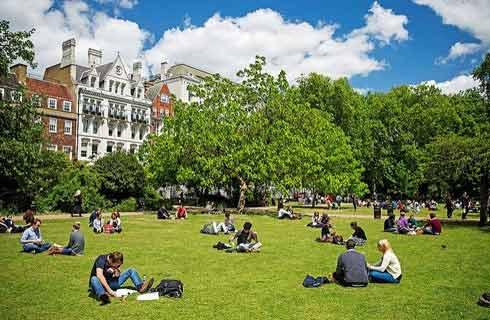Doctor of Philosophy in Biomedical Sciences - Microbiome and Microbial Sciences

学历文凭
Ph.D.

专业院系
微生物学

开学时间

课程时长

课程学费

国际学生入学条件
Successful applicants must hold a bachelor's degree or the equivalent from an accredited institution in the United States or from a recognized university-level academic institution abroad and at least a B average (3.0 GPA) or its equivalent by the time they enroll. Some exceptional applicants with lower GPAs may be recommended for admission.The minimum TOEFL score for admission is 85 for the Internet Based Test and 64 for the Paper Based Test. The university-wide minimum IELTS Academic Training exam score required for consideration for graduate admission is Band Score 7.
IDP—雅思考试联合主办方

雅思考试总分
7.0
了解更多
- 雅思总分:7
- 托福网考总分:85
- 托福笔试总分:550
- 其他语言考试:The minimum PTE Academic score required for graduate admission is Overall Score: 65.
CRICOS代码:
申请截止日期:请 与IDP联系 以获取详细信息。
课程简介
The Microbiome & Microbial Science Research Area focuses on the numerous critical interactions of humans with the microbial world, in both health and disease. The diverse and cross-disciplinary faculty members of this research area apply fundamental principles of microbiology, immunology, molecular cell biology, pharmacology, -OMICs (genomics, proteomics, metabolomics) and systems biology to understand the composition and function of the human microbiome, and to elucidate the molecular and cellular pathogenesis of viral, bacterial fungal and parasitic infectious diseases.<br><br>The microbes that normally inhibit our gut, skin and mouth provide the vast majority of our body's gene content, and function to help us digest and process nutrients, while generating their own waste and metabolites. Importantly, these microbes constantly interact with, and help shape, our immune systems. It is now recognized that the makeup of our microbiome influences diverse diseases including food allergies, obesity, inflammatory bowel disease, colon cancer, rheumatoid arthritis, atherosclerosis, asthma and even the brain function and behavior. Microbial communities we encounter in the home, hospital and outdoor environments further influence our health status. Understanding our microbiome and its role in human health can inspire novel diagnostic, preventative and therapeutic interventions. Indeed, the rich chemical and metabolic diversity of the microbiome is itself a promising source for new drug discovery.
相关申请

预科

奖学金

实习机会

在校学习

跨境学习

校园授课-线上开始

在线/远程学习
学校排名
世界排名
30
数据源:泰晤士高等教育世界大学排名
本校相关课程
Master of Arts in Music

学历文凭
Masters Degree
下一个开始日期
课程费用总额
Master of Business Administration

学历文凭
Masters Degree
下一个开始日期
课程费用总额
Master of Fine Arts in Writing

学历文凭
Masters Degree
下一个开始日期
课程费用总额
Master of Arts in Latin American Studies

学历文凭
Masters Degree
下一个开始日期
课程费用总额
Master of Arts in History

学历文凭
Masters Degree
下一个开始日期
课程费用总额
Master of Arts in Global Health

学历文凭
Masters Degree
下一个开始日期
课程费用总额
其他相关课程
生物学(荣誉)理学士学位-微生物学

滑铁卢大学
泰晤士高等教育世界大学排名:

学历文凭
Bachelor Degree with Honours
下一个开始日期
课程费用总额
微生物学(荣誉)理学学士

曼尼托巴大学
泰晤士高等教育世界大学排名:

学历文凭
Bachelor Degree with Honours
下一个开始日期
课程费用总额
微生物学学士学位

曼尼托巴大学
泰晤士高等教育世界大学排名:

学历文凭
Bachelor Degree
下一个开始日期
课程费用总额
微生物学学士(普通)

曼尼托巴大学
泰晤士高等教育世界大学排名:

学历文凭
Bachelor Degree
下一个开始日期
课程费用总额
微生物学博士

麦吉尔大学继续教育学院
泰晤士高等教育世界大学排名:

学历文凭
Ph.D.
下一个开始日期
课程费用总额
微生物学理学硕士(论文)

麦吉尔大学继续教育学院
泰晤士高等教育世界大学排名:

学历文凭
Masters Degree
下一个开始日期
课程费用总额





